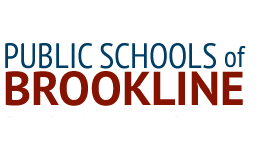PUBLIC SCHOOLS OF BROOKLINE POLICY MANUAL
SECTION B BOARD GOVERNANCE AND OPERATIONS
4. School Committee Meetings (Policy on Public Comment and Participation at School Committee Meetings is a Subsection of the Policy on School Committee Meetings)
Public Comment and Participation at School Committee Meetings (Voted 1/26/93, #93-29; 4/27/93, #93-115; 9/27/94, # 94-80; 11/3/05, #05-122; 8/20/20, #20-101)
School Committee meetings are conducted in accordance with the Massachusetts Open Meeting Law, G.L. c. 30A, sections 18-25 inclusive. In addition, the School Committee believes that the public should have an opportunity to comment to the Committee on issues that affect the school district and are within the scope of the Committee’s responsibilities. Therefore, the Committee shall generally set aside a period of time at School Committee meetings to hear from the public. If the Committee believes that an issue requires a broader dialogue with the public, the Committee may schedule a separate public hearing on that issue.
Public Comment is not a discussion, debate, or dialogue between or among speakers and the School Committee. Nor is it a public hearing. Rather, it is intended to offer individuals an opportunity to express their opinion on issues of School Committee business. While the Committee and/or administrators will not typically respond to comments or questions posed at Public Comment, the Chair, as presiding officer of the meeting, may answer or request an answer to a question if the Chair deems it expeditious. Further, should the Chair believe that an issue or question falls outside the purview of the School Committee, the Chair may request that individuals direct it to the appropriate person or body so that the matter is given proper
consideration.
The following process will govern Public Comment and participation at School Committee meetings:
The School Committee shall generally have a Public Comment section at School Committee meetings, according to the following guidelines:
M.G.L c. 30A, s. 20(g) provides, in relevant part, that: “No person shall address a meeting of a public body without permission of the chair, and all persons shall, at the request of the chair, be silent.” The School Committee Chair will favor those speakers who sign up in advance under the procedure specified below.
- For all in-person meetings, a sign-up sheet will be available as people enter the meeting, and people will speak in the order in which they sign up, unless more than one person wishes to speak on a single topic, in which case the Chair may call on them together. Additional information on how to comment, including for remote meetings, will be provided in the meeting announcement posted on the town website.
- Any person wishing to speak must identify themself by name and address, and specific interest for wishing to speak. The Chair may favor, in no particular order, those speakers who are parents or guardians of Brookline students, Brookline residents, or, in appropriate circumstances, a Town of Brookline employee.
- There will be a time limit of 5 minutes per person, which will be enforced by the Chair of the meeting. If the number of people wishing to speak exceeds 3, the Chair may, at the Chair’s discretion, limit individual comments to no more than 3 minutes per person. Written comments of any duration may be presented to the School Committee Executive Assistant before or after the meeting and become a part of the meeting minutes. All remarks will be addressed through the Chair of the meeting.
- The amount of time allocated for the Public Comment session will generally be 15 minutes provided that the Chair may extend any individual session in her/his/their discretion.
- Discussion of individual personnel issues will be prohibited.
- Responses to concerns will be made only by the Superintendent or Chair of the meeting, or other members, at the Chair’s discretion.
- On those issues that can be resolved by directing citizens to the appropriate staff, the Superintendent or Chair will advise the citizen of appropriate steps to take.
- The Chair of the meeting, after a warning, reserves the right to terminate speech which is not constitutionally protected if it constitutes true threats that are likely to provoke a violent reaction and cause a breach of the peace, or incitement of imminent lawless conduct, or contains obscenities. Defamatory or abusive remarks are always out of order. If a speaker persists in improper conduct or remarks, the Chair may terminate that individual’s privilege of address.


